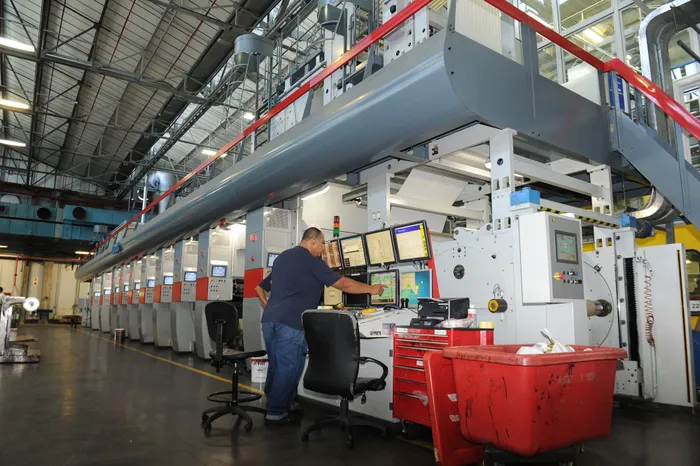Decline in Absa PMI raises alarms for South Africa's economic outlook

Professor Irrshad Kaseeram, from the University of Zululand’s economics department, said that demand for manufactured goods decreased in December. Picture Henk Kruger/Independent Newspapers
South Africa’s manufacturing sector is experiencing a troubling downturn as the Absa Purchasing Managers’ Index (PMI) for December 2024 recorded a contraction of 1.9 points, falling to 46.2.
This contraction has largely echoed findings from the S&P South Africa Global PMI, which also indicated a decrease in business activity during the month, prompting economists to voice concerns about possible repercussions for economic growth in 2025.
Absa today said that the PMI remained in contractionary territory.
“This puts the 2024 Q4 average PMI at 49 points, not significantly different from 49.8 points for 2024 Q3, but above Q1 (47.8) and Q2 (48.1). The manufacturing sector experienced a volatile 2024, with this second consecutive monthly decline in December reversing the upward momentum seen in September and October,” it said.
“The business activity index decreased by 8.7 points to 40.3 in December. The pullback in production came on the back of a sharp fall in demand.”
Absa added that the new sales orders index fell to 37.4 points from 45.9 in November.
“Worryingly, some respondents noted that conditions in December 2024 were worse than usually seen in December. In addition, export sales dropped sharply and fell back to levels last seen in the first half of 2024.”
Absa said that the purchasing price index fell by 1.3 points to 60.4 in December.
“This was surprising given that the rand exchange rate was relatively weaker in December, while fuel prices and LPGAS increased at the beginning of the month.”
Efficient Group chief economist, Dawie Roodt, said that the Absa PMI was really disappointing news.
“I expected an uptick in economic growth in the final quarter of 2024,” Roodt said.
“If we put the three quarters together that did very badly, it does affect the outlook for economic growth for 2024 which could now be looking at something like 0.6 percent growth, which is much lower than what was predicted by economists.”
Meanwhile, S&P Global Market Intelligence senior economist, David Owen, on Monday said that December’s PMI data suggested that the South African economy may have lost a little bit of steam at the end of 2024.
“New orders failed to grow after going on an impressive run in the latter stages of the year, as firms highlighted a more muted demand environment. They also faced accelerated cost pressures, as wage inflation quickened, and material and transport prices rose.”
S&P Global said that consistent with the headline PMI, the seasonally adjusted New Orders sub-index indicated a stalling of sales growth in December.
“Anecdotal reports suggested that quiet market conditions dampened order book intakes, alongside a further contraction in new export business. The drop in sales ended a four-month sequence of expansion, which had been the longest observed by the survey in over two years.”
Professor Irrshad Kaseeram, from the University of Zululand’s economics department, said that demand for manufactured goods decreased in December, which was unexpected given an expansion of the economy over the previous four months.
“The decline was due to the lag effects of inflationary pressures which have been noticed in increased wage rise demands, higher transport and input materials costs. It is due to these factors that South African Reserve Bank was cautious in lowering the repo rate,” Kaseeram said.
BUSINESS REPORT
Related Topics: